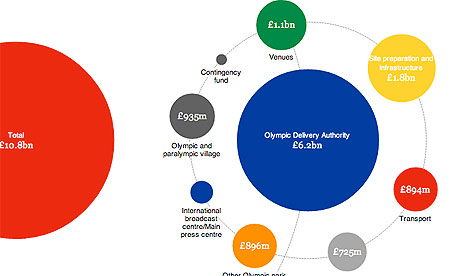After visiting the olympics earlier this week something that really interested me was the cost the olympics has brought to England and how eco friendly it has been this year for Great Britain. I have now decided to research the cost of the olympics, looking at how this has increased in recently years with increased expectations and increased tourism that the olympics brings to it's hosting city.
What comes with cost is recycling and the effect that the olympics has on the environment and surrounding area's of the hosting city. I will also be looking into this and researching further as I found certain facts around the olympic park really interesting as the eco friendly aspect was reflected through recycling bins and facts were printed onto signs and spray painted onto the floor as well.
Research I collected from the Guardian:
London Olympic 2012: Where does the money come from - and where is it being spent?
We've pulled together data published by the Olympic Delivery Authority(ODA), the Department for Culture, Media and Sport (DCMS) - and what we know of the London Organising Committee of the Olympic and Paralympic Games (Locog) to piece together a detailed picture of funding and spending.
• The single biggest item of spending has been preparing the Olympic park: at £1.822bn, it includes the local infrastructure, roads, cleaning up the site and powerlines
• That's followed by the venues, which cost £1.106bn, and the most expensive is the Olympic stadium at £428m
• The cheapest venue is the basketball arena at only £4m
• While security is budgeted at £533m - there's another £475m budgeted to cover army, security services and police spending (that includes surface to air missiles on tower blocks)
• Legacy specific funding - ie the money for making sure the park has a future once the games are over - is £296m for 'park transformation', to be spent by the London Legacy Development Corporation
